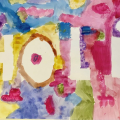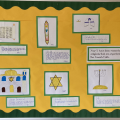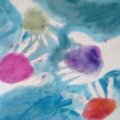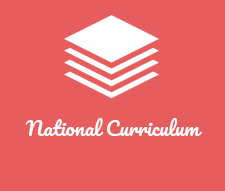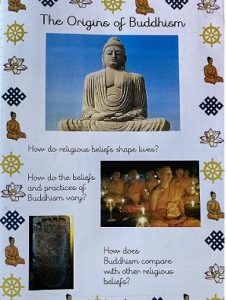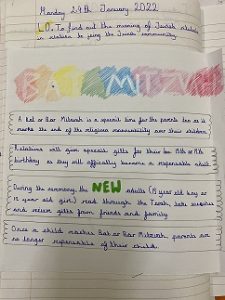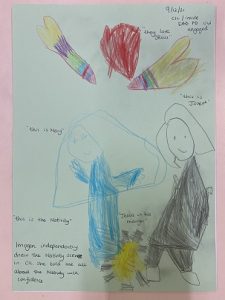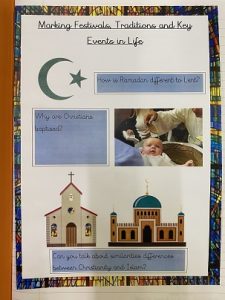“I enjoy learning about religions because they are all different.” Louie
At Manland, we use the Hertfordshire Agreed Syllabus of Religious Education to teach an engaging and inspiring R.E curriculum, which encourages pupils to develop respect and understanding of the beliefs and practices of others and the world around them. There are eight key areas of learning that we apply to our R.E teaching from Reception to Year 6. These are: Belief and practices: Sources of wisdom: Symbols and actions: Prayer, worship and reflection: Identity and belonging: Ultimate questions: Human responsibility and values: Justice and fairness. Within lessons, pupil’s develop their knowledge and understanding of Christianity and also the five principal religions: Islam, Hinduism, Sikhism, Judaism and Buddhism. Pupil’s have opportunities to explore religious artefacts and visit religious places around our local area. We look for opportunities to explore religion in our local community by inviting visitors into our school. An example of this is, a local Christian group, ‘Jump’ come into school to provide termly sessions to enrich the children’s learning on Christianity. We also invite parents and relatives into school to talk about their religious beliefs. For example, a grandparent of one of our children visited to share with the class their Jewish family traditions. Our pupils have the opportunity to experience a range of extra-curricular opportunities throughout the year. Pupils take part in activities to raise money for charities and are part of a harvest festival where we collect and share food donations to a local foodbank. At Christmas time, we hold a nativity and a Christingle service. House Learning Day activities and assemblies throughout the year provide opportunities to enrich our teaching and learning of R.E. For example, learning about festivals around the world and how they are celebrated in Britain, such as, Diwali, the Hindu festival and how Jewish people celebrate Hanukkah.
Our Aims – Herts Agreed Syllabus
The Herts Agreed Syllabus aims to ensure that all pupils develop knowledge and understanding of sources of wisdom and their impact whilst exploring personal and critical responses: A. Sources of wisdom and their impact All pupils should: • Know, understand and explore the significance and impact of sacred texts, other sources of wisdom and ways of expressing meaning • Express ideas and insights about the nature of beliefs, values and practices and their impact upon the identity of individuals and communities • Recognise and explore the diversity which exists within and between religious traditions B. Personal and critical responses All pupils should: • Express with increasing discernment their personal reflections, critical responses and connections to faith and belief enquiring into philosophical, moral and ethical issues • Engage with the questions and answers offered by religions and worldviews concerning ultimate questions and human responsibility • Develop the skills required to engage with others in dialogue and to cooperate in society with respect and compassion
Ways to Develop R.E Skills at Home
- Discuss different religions and their beliefs and practices.
- Visit places of worship in our community, around the UK and also in other countries around the world.
- Read religious stories together and discuss the meaning behind them. https://www.youtube.com/channel/UCiM9mWNxTWpKY-V9Eb9TfkA
- Celebrate religious festivals with friends and family. https://www.reonline.org.uk/festival-calendar/
- Encourage children to ask questions about religion and explore answers together.
- https://www.bbc.co.uk/bitesize/subjects/z7hs34j

